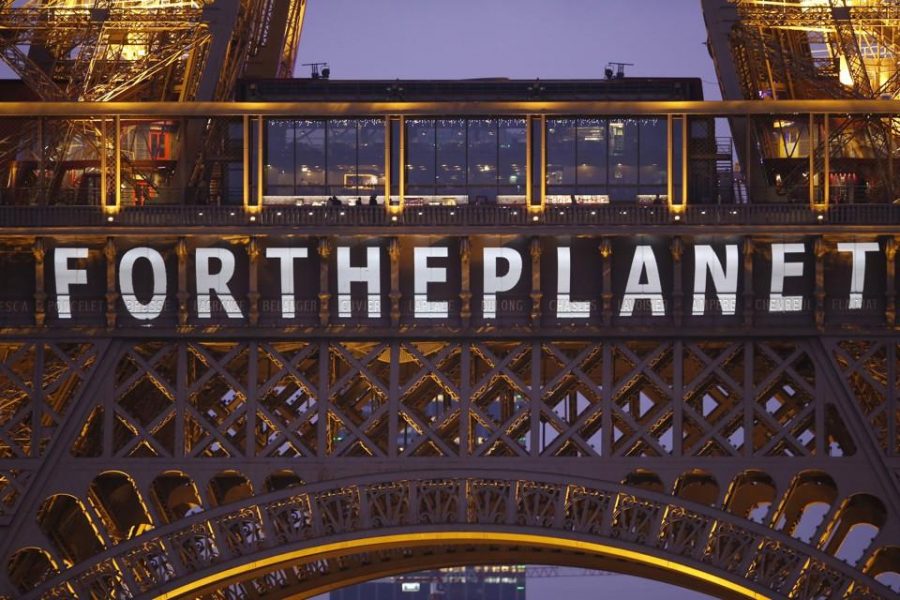Paris Climate Agreement
The slogan “For the planet” is projected on the Eiffel Tower as part of the World Climate Change Conference 2015
October 5, 2016
Countries that represent about 57% of world greenhouse gas emissions have ratified the Paris agreement on climate change and are planning to have it go into effect on Nov. 4.
The Paris Agreement, an international convention seeking to limit increase in global temperatures, aims to prevent average temperatures from increasing above 1.5°C—and never increasing to 2°C—above pre-industrial levels. The participating nations, United States, China, India, Canada, and more than 50 others, are setting goals to help reduce greenhouse emissions and gradually stop being dependent on fossil fuels.
The deal takes effect in 30 days because sixty-two countries have adopted the agreement as of Tuesday, accounting for at least 55 percent of global emissions; however, they only account for about 52 percent of emissions.
President Barack Obama stated that the Paris agreement is “a turning point for our planet,” and U.N. Secretary-General Ban Ki-moon called it’s strong international support a “testament for the urgency of action.” Additionally, Katharine Hayhoe, a climate scientist at Texas Tech, called it “A moment of bright hope in the increasingly discouraging landscape of climate science.”
The agreement commits both rich and poor countries to take actions against the rise in global temperatures that is melting glaciers, rising sea levels and shifting, rainfall patterns which are also causing different species to go extinct off the earth. The plans must be updated every five years and be maintained to pursue measures to implement their stated goals.
Adopted by consensus on Dec. 12, 2015, the agreement entered into force at a considered record speed for international diplomacy, reflecting a sense of urgency in the fight against global warming and to seal the deal before Secretary General Ban and President Obama leave office.
This year’s election influences the agreements adoption too because Democratic presidential candidate Hillary Clinton supports the agreement, while Republican candidate Donald Trump opposes it.
“Over the past decade, I have worked ceaselessly to bring countries together to accelerate the global response to climate change. I have visited communities on the climate frontlines, from the Arctic to the Amazon, and I have seen how climate impacts are already devastating lives, livelihoods and prospects for a better future.” – United Nations Secretary General Ban Ki-Moon
This is historic agreement because it’s the first time so many nations have ever signed to fight climate change, and it’s going to into effect quickly which is a positive sign for the globe. However, we’re still a far away from a guaranteed solution, so this agreement does not necessarily mean we will completely stop being reliant on fossil fuels.





































